Today’s Current Affairs: 24th September 2024 for UPSC IAS exams, State PSC exams, SSC CGL, State SSC, RRB, Railways, Banking Exam & IBPS, etc
Table of Contents
Credit Default Swaps:

Securities and Exchange Board of India (SEBI) announced that mutual funds can now sell credit default swaps (CDS) citing the need to aid liquidity growth in corporate bond market, according to its latest circular.
- The move follows RBI’s directive in 2022 to provide revised regulatory framework for debt derivatives. So far, only buying CDS’s were permitted. Allowing both purchase and sale of the instrument will improve flexibility for MFs.
- Credit Default Swap (CDS) is a financial derivative that allows an investor to transfer the credit risk of a debt instrument, such as a bond, to another party.
- A CDS is essentially a contract between two parties: the buyer and the seller. The buyer of the CDS makes periodic payments to the seller in exchange for protection against the default of a debt instrument, such as a bond or loan.
- The buyer pays regular premiums to the seller, similar to an insurance policy.
- If the underlying debt instrument defaults or a specified credit event occurs (e.g., bankruptcy, failure to pay), the seller compensates the buyer.
- The compensation typically includes the face value of the debt instrument and any unpaid interest.
Deposit Crunch:

Banks are currently experiencing a deposit crunch, which is limiting their ability to extend credit.
- The Reserve Bank of India Governor Shaktikanta Das had, in July, raised concerns over slower deposit mobilisation compared to credit growth stating that as it may create structural liquidity issues.
- India is among the fastest-growing large economies of the world largely driven by the government’s elevated expenditure on infrastructure development.
- While government capital expenditure has spurred the growth rate, job creation remains a concern with youth unemployment touching 17 per cent, as highlighted by the World Bank.
- Private investment, measured by private Gross Fixed Capital Formation (GFCF), has been subdued, declining to a four-quarter low of 6.46 per cent in Q4FY24, down from 9.7 per cent in the previous quarter.
- The Economic Survey 2023-2024 also highlighted that between FY19 and FY23, the share of private non-financial corporations in overall GFCF increased only by 0.8 percentage points from 34.1 per cent to 34.9 per cent.
- In a worrying trend, S&P Global forecasted that year-on-year credit growth is set to decline during the current financial year to 14 per cent, compared to 16 per cent in the previous fiscal year.
- One key reason for this is the reduced risk appetite from banks for lending to the private sector, which is the economy’s largest job creator.
- S&P Global also said that “regulatory actions to tame unsecured lending” are also slowing credit growth. The RBI recently increased risk weights for unsecured loans which has moderated loan growth in this segment in recent months.
PM E-DRIVE Excludes Electric Cars:
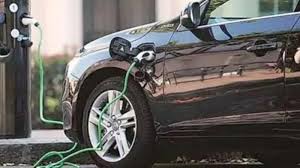
The PM Electric Drive Revolution in Innovative Vehicle Enhancement (PM E-DRIVE) Scheme excludes electric cars from any direct subsidies.
- The government believes other measures, such as lower GST for electric cars are adequate to support the sector.
- PM E-DRIVE Scheme is aimed at promoting electric mobility in India having a financial outlay of Rs 10,900 crore over two years.
- It has been launched to replace FAME II.
- It offers fiscal incentives to around 25 lakh electric two-wheelers, 3 lakh electric three-wheelers, and 14,000 electric buses through demand incentives.
- Automakers can claim reimbursements for eligible electric vehicle (EV) sales, similar to the previous FAME-II scheme.
- However, electric cars are notably excluded from the subsidy.
- Installation of Electric vehicle public charging stations (EVPCS) in selected cities and on selected highways.
- Test agencies to be modernised to deal with the new and emerging technologies to promote green mobility.
PM Janjatiya Unnat Gram Abhiyan:
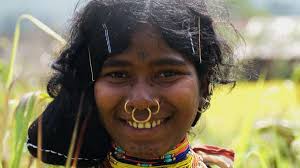
The Union Cabinet approved Pradhan Mantri Janjatiya Unnat Gram Abhiyan (PMJUGA) for improving the socio-economic condition of tribal communities.
- PMJUGA is a centrally sponsored scheme for the welfare of tribal families in tribal-majority villages and aspirational districts.
- It will cover 549 districts and 2,740 blocks spread across all tribal majority villages across 30 States/UTs.
- It will cover around 63,000 villages benefitting more than 5 crore tribal people.
- According to the 2011 Census, India has a Scheduled Tribe (ST) population of 10.42 crore (8.6%), consisting of over 705 tribal communities.
- It envisions fulfilling critical gaps in social infrastructure like health, education, livelihood, through different schemes of Government of India by convergence and outreach.
- It comprises 25 interventions which will be implemented by 17 ministries through funds allocated to them under the Development Action Plan for Scheduled Tribes (DAPST) in the next 5 years to achieve the following goals.
Fact-Check Unit:
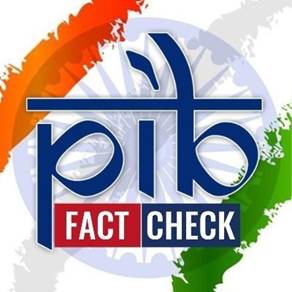
The Bombay High Court has struck down the amended IT Rules, 2023, which allowed the Centre to establish a fact-check unit to identify “fake news” about the government.
- The court ruled that the rules violated the Constitution’s rights to equality and free speech, describing the terms “fake, false, and misleading” as vague.
- The court ruled that the state is not obligated to provide only verified information.
- The measures also failed the test of proportionality, which evaluates the legitimacy, suitability, necessity, and balancing of laws against rights.
- This decision followed a split verdict in January 2024 and a petition from various groups, including comedian Kunal Kamra. Digital rights advocates welcomed the ruling, emphasizing the importance of independent media in fact-checking.
Greater One-Horned Rhino : In News:
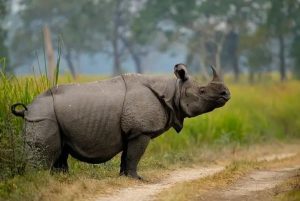
Kaziranga and other protected habitats of the one-horned rhinoceros in Assam recorded an 86% drop in poaching of the herbivore since 2016, the Chief Minister said recently.
- Greater One-Horned Rhino also known as Indian rhinoceros, is the largest of the three Asian rhinos and, together with African white rhinos, is the largest of all rhino species.
- Scientific Name: Rhinoceros unicornis
- It can be found in India and Nepal, particularly in the foothills of the Himalayas.
- Kaziranga National Park in Assam, India, contains the largest population (2,401).
- The largest of the Asian rhinos, male Indian rhinos weigh approximately 2,200 kg (nearly 4,840 pounds) and range in height from 170 to 186 cm (67 to 73 inches) and are 368 to 380 cm (145 to 150 inches) long.
- The rhino is primarily a grazer. Its diet consists almost entirely of grasses, but it also eats leaves, branches, fruit, and aquatic plants.
- Conservation Status:IUCN Red List: Vulnerable
Quad Cancer Moonshot Initiative:
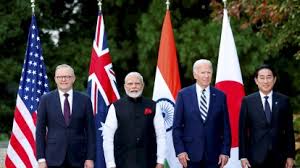
The Quad grouping took a groundbreaking cancer initiative called the Quad Cancer Moonshot Initiative.
- Quad Cancer Moonshot Initiative was launched by the QUAD countries (India, United States, Australia and Japan).
- It is aimed at implementing innovative strategies to prevent, detect, treat and alleviate the impact of cancer on patients and their families.
- It will focus on expanding cervical cancer screening; increasing vaccinations against the human papillomavirus, or HPV, a common sexually transmitted infection that is the primary cause of cervical cancer; and treating patients.
- India will, additionally, offer technical assistance to interested countries in the Indo-Pacific region on DPI for cancer screening, care and continuum through its US $10 million contribution to WHO’s-Global Initiative on Digital Health.
- India commits to providing HPV sampling kits, detection tools and cervical cancer vaccines worth $7.5 million to the Indo-Pacific region.
- India is working on an AI based treatment protocol for the disease.
- India will provide support for radiotherapy treatment and capacity building for cancer prevention in the Indo-Pacific.
- This significant contribution aims to strengthen local efforts to prevent and detect cervical cancer and empower communities with affordable, accessible tools for early detection and prevention, while supporting vaccination programs to reduce the disease burden across the region.
Goa Maritime Symposium 2024:

The Indian Navy is hosting the fifth edition of the Goa Maritime Symposium at Naval War College, Goa.
- Goa Maritime Symposium 2024 is a forum for fostering collaborative thinking, cooperation, and mutual understanding between India and key maritime nations of the Indian Ocean Region
- The theme for the event is Common Maritime Security Challenges in the Indian Ocean Region: Progressing Lines of Efforts to Mitigate Dynamic Threats such as illegal and unregulated fishing and other illegal maritime activities.
- It will be participated by the representatives from 12 Indian Ocean Littoral countries- Bangladesh, Comoros, Indonesia, Madagascar, Malaysia, Maldives, Mauritius, Myanmar, Seychelles, Singapore, Sri Lanka and Thailand. Observers from Kenya and Tanzania
Goa Maritime Symposium (GMS)
- It was conceptualised and instituted by the Indian Navy in 2016.
Ambassador Of India To Netherlands:
Kumar Tuhin has been appointed as India’s Ambassador to the Kingdom of the Netherlands. The Ministry of External Affairs recently announced this, and Tuhin is expected to take on his new role soon. Tuhin is part of the Indian Foreign Service (IFS), joining in 1991. He is currently the Director General at the Indian Council for Cultural Relations (ICCR). Throughout his career, he has held various important roles in India and abroad.
PM Vishwakarma Scheme : In News
Prime Minister Narendra Modi recently spoke to a group of artisans at an event celebrating the anniversary of the PM Vishwakarma Yojana. The event took place at the Swavalambai ground in Wardha, where the Prime Minister encouraged artisans to explore business opportunities and entrepreneurship.The PM Vishwakarma Yojana is a government program aimed at improving the productivity and success of people involved in traditional occupations like handicrafts and small-scale industries. Since its launch, the scheme has helped more than 6.5 lakh (650,000) artisans by giving them modern machinery and toolkits to improve their work.
16th Assembly of the Asian Organization of Supreme Audit Institutions:
President Droupadi Murmu will inaugurate the 16th Assembly of the Asian Organization of Supreme Audit Institutions (ASOSAI) on September 24, 2024, in New Delhi. This significant event marks the beginning of crucial discussions centered on the evolving role of Supreme Audit Institutions (SAIs) in promoting transparency and accountability.
FCRA Licence of International Cooperative Alliance Cancelled:
The Foreign Contribution Regulation Act (FCRA) licence of the International Cooperative Alliance (ICA) was cancelled by the Union Home Ministry for alleged rule violations. The ICA, established in 1895, is an apex body representing cooperatives worldwide and has over 1 billion members.




